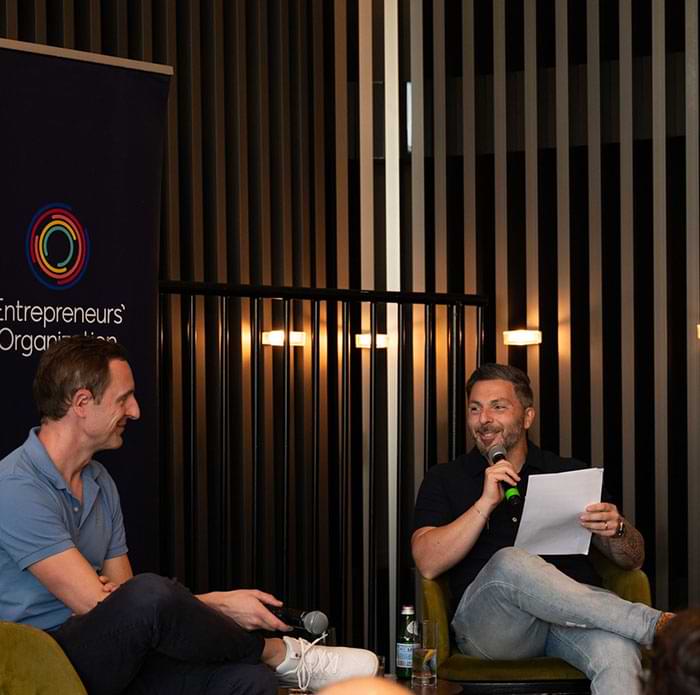Behavioural Economics of Time Management
December 23, 2024
Time management is a tricky beast.
While some of us might feel like we've got a solid grip on our schedules, many find that time has a sneaky way of slipping through our fingers.
Here's a secret — time management isn't just about being productive or organised. It's also about understanding our own behaviours and thought processes.
Behavioural economics offers some insights into why we struggle with time management and how we can get better at it.
Nice Meeting You, Behavioral Economics
In an ideal world, we'd all be superstars at making decisions that benefit us.
Rational choice theory in economics suggests that when faced with different options, we always pick the one that brings us the most satisfaction.
However, the reality is a bit messier and way more human.
Behavioural economics humorously points out that we're far from rational decision-making robots.
We're emotional, easily distracted by shiny objects (or tasty treats), and greatly influenced by external factors.
Instead of just crunching the numbers, behavioural economics digs into the "why" behind financial decisions.
This field is built on a fascinating collection of principles that make you go, "Ah, that explains it!"
How do all these principles and quirks translate into time management?
Framing: A Shift in Perspective
Framing in behavioural economics is like a magician's sleight of hand — it's all about presentation.
In essence, framing involves how information is presented, which can significantly influence our decisions and judgments.
Let's say you have two options — option A says you'll gain $10, while option B highlights that you won't lose $10.
Technically, they're the same, but the first one sounds so much sweeter.
That's the magic of framing!
How does framing play into your time management game?
Picture this — you've got a mountain of tasks, and some genius tells you to "think of everything you've completed so far" instead of "look at what's left to do."
Suddenly, your to-do list seems less like a never-ending abyss and more like a series of manageable steps.
By framing your tasks positively and celebrating small wins, you trick your brain into feeling accomplished.
This principle boosts motivation and productivity, making you less likely to procrastinate.
Heuristics: Shortcutting Your Brain's Pathways
Heuristics are like the cheat codes of the brain — mental shortcuts that help us navigate complex decisions with minimal cognitive load.
Instead of painstakingly analyzing every bit of data and outcome, heuristics let us zoom in on the most important information and make decisions quickly.
In behavioral economics, heuristics help explain why we often rely on "rules of thumb" rather than detailed analysis.
Whether it's the "rule of three" when comparing products or the "availability heuristic" that makes us think shark attacks are more common after watching Jaws, these mental shortcuts play a fascinating role in our decision-making processes.
When it comes to time management, think about the "Two-Minute Rule" — a brilliant heuristic.
If a task takes less than two minutes, do it right now. Voila! You've just cleaned up those little tasks cluttering your to-do list.
How about the "Pareto Principle," aka the 80/20 rule? This gem suggests that 80% of your results come from just 20% of your efforts.
Prioritise those high-impact tasks and watch your productivity soar.
Loss Aversion: Fear of Missing Out (FOMO) on Productivity
Loss aversion is the little quirk of our brains where we feel the pain of losing something intensely rather than the joy of gaining something equivalent.
For example, the sting of losing $100 feels much more severe than the delight of finding $100. This same tendency affects our time management.
Have you ever felt the need to immediately respond to an email or text, even if it's not urgent? Perhaps you're simply afraid of missing out on opportunities or falling behind in your work.
While this may seem like a harmless habit, it can actually hinder our productivity.
Constantly checking and responding can interrupt our flow and take away valuable time from more meaningful tasks.
One solution is to set designated times throughout the day for checking and responding to emails and messages rather than constantly being at the beck and call of every notification.
This way, you spend time finishing important tasks and leave enough time for other tasks — no losses, only gains.
Sunk-Cost Fallacy: Let Go of What's Already Sunk
The sunk-cost fallacy revolves around our tendency to persist in an endeavor once we've invested resources like time, money, or effort, even when cutting our losses and moving on would be better.
Essentially, we think, "I've already put so much into this; I can't give up now!" even if continuing means more wasted resources.
This tricky little fallacy messes with your time management this way — you've spent hours working on a campaign that just isn't panning out. Instead of reassessing and possibly shifting gears, you forge ahead, pouring more time into it because the idea of "wasting" what you've already invested is too painful.
But guess what? This thought can lead you straight down a time-sucking rabbit hole.
To flip the script on the sunk-cost fallacy, start focusing on forward-looking decisions.
Ask yourself: Is this campaign still the best use of my time?
Is there a greater return on investment waiting if you pivot to a different campaign?
By recognising when you're being swayed by past investments rather than future gains, you can allocate your time more wisely and overall become more productive.
Anchoring: The Sticky Influence on Your Decisions
In behavioural economics, anchoring is like that catchy song chorus that sticks in your head and influences your mood all day. Essentially, it's the cognitive bias where an initial piece of information, or "anchor," sets the tone for all subsequent judgments and decisions.
Think of it as a mental Post-it note that you just can't ignore.
In time management, let's say you've just been handed your first task of the day, and it seems like a real doozy — say, estimating a deadline for a massive project.
If your initial guess is overly pessimistic, you might set yourself up for a marathon of overplanning and stress ("I need three weeks minimum!").
Conversely, an excessively optimistic anchor ("Two days should be plenty!") might turn you into a dizzying whirlwind of last-minute panic when reality hits.
Anchors can also show up when you divide your day into time slots for tasks. If you initially allocate an hour to a minor task, you might inadvertently allow it to bloat into something much bigger — a prime way to squander your time.
The key here is to be mindful of these anchors and adjust as needed.
Planning Fallacy: The Optimist's Time Trap
The planning fallacy is the behavioural economics version of that overly eager friend who always assures you that "we'll be there in 10 minutes," despite living a solid 30 minutes away.
This cognitive bias causes people to underestimate the time, costs, and risks of future actions while overestimating the benefits. It's like wearing rose-tinted glasses when strategising your marketing campaign — everything looks perfectly manageable until reality crashes the party.
The planning fallacy can turn your well-intentioned to-do list into a marathon of unmet deadlines and stress.
For instance, you might optimistically allocate just an hour to creating a marketing strategy, only to find yourself knee-deep in research, implementation, and revisions for weeks later.
The key to combating the planning fallacy is to inject a dose of realism into your planning process. Buffer your time slots with some "wiggle room" for unexpected hiccups and always have a Plan B.
By acknowledging that tasks often take longer than anticipated, you can create a more flexible and, ultimately, more satisfying schedule.
Temporal Discounting: The Procrastinator's Achilles Heel
Temporal discounting is a concept in behavioural economics that explores how people tend to favour smaller, immediate rewards over larger, delayed ones.
Think of it as the impulse to choose instant gratification — a chocolate bar now — over a potentially more significant payoff like a healthier lifestyle later.
This bias doesn't just influence our eating habits; it's a major player in managing our time.
Consider the scenario of a team leader who chooses between tackling an easy, low-priority task like organising emails or a more challenging, high-priority project such as developing a new strategic plan.
The immediate reward of clearing an inbox can be tempting, offering a quick sense of accomplishment and a cleaner digital workspace.
However, the strategic plan holds much greater value in the long run by driving business growth and innovation.
This type of procrastination based on temporal discounting can seriously affect individuals and organisations. Combat this tendency toward instant gratification by prioritising tasks based on their long-term impact rather than short-term satisfaction.
Final Thoughts (and Behaviours)
Time is one of our most precious resources; managing it is crucial to our personal and professional success.
By understanding and applying principles from behavioural economics, you can develop better time management practices that contribute to your personal and professional growth.
Remember, time management is not about perfection; it's about making small, consistent improvements.
Start framing your time as the valuable, finite resource it is, and watch how it transforms your productivity and satisfaction.



